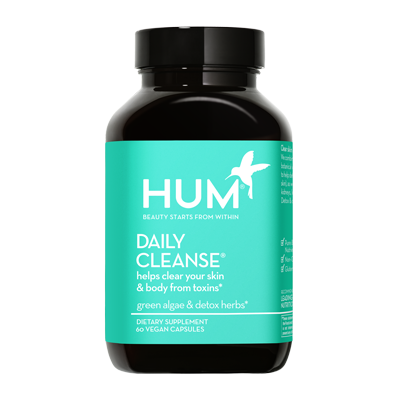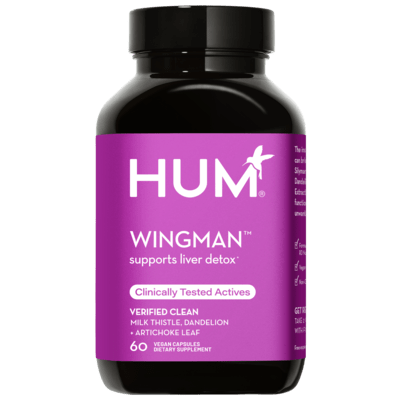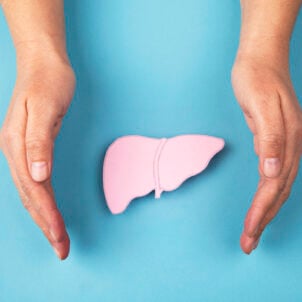Have you ever wondered about the buzz surrounding detox? Let’s break it down together. Our bodies have intricate detoxification systems that are at work 24/7. The liver, kidneys, lungs, and lymphatic system are the stars of the show, but it’s really a whole-body process. While these organs are capable of managing our body’s detoxification needs, modern living exposes us to toxins, warranting additional support for our body’s natural detoxification processes.
Understanding Detox: A Natural Ongoing Process
Detoxification is not a trend but a naturally occurring and ongoing process driven by vital organs such as the liver, kidneys, lungs, gut, and more. It involves metabolizing medicines, hormones, and food while eliminating environmental toxins like pollutants and pesticides. Contrary to popular belief, detox isn’t a quick fix or a trendy cleanse; it’s a continuous, natural body function.
Navigating Each Body Part’s Role in Detox
The Liver
A powerhouse in detox, the liver filters and detoxifies toxins, ensuring their safe removal. It processes toxins before reintroducing them into the bloodstream for circulation or elimination through sweat, urine, or bowel movements. More specifically, liver detoxification involves a two-step process. In the initial phase, the liver transforms toxins into less harmful forms. Subsequently, in the second phase, these altered substances are converted into water-soluble compounds, making them easily excretable through urine. Additionally, the liver produces bile, aiding in the digestion of fats and facilitating the elimination of substances through regular digestion pathways.
The Kidneys
Purifying the blood by filtering out harmful substances, the kidneys excrete them in urine. Specifically, the kidneys are responsible for removing naturally occurring internal toxins, such as urea and electrolytes, by filtering them out and excreting them through urine. Therefore, kidney function is also critical for electrolyte balance, fluid levels, and hormone regulation.
The Lungs
Often forgotten about is the lung’s role in detoxification. They expel internal toxins, including carbon dioxide and other waste gases, through the process of exhalation, ensuring the maintenance of a balanced and healthy internal environment.
The Lymphatic System
The lymphatic system, a crucial component of both the circulatory and immune systems, plays a pivotal role in detoxification. Responsible for flushing out toxins and transporting immune cells, this system also maintains fluid balance within the body. Supporting the lymphatic system through practices such as adequate hydration, regular exercise, dry brushing, and sauna sessions contributes to its optimal functioning and enhances the overall detoxification process.
The Glymphatic System
The glymphatic system is a fascinating network in the brain that contributes significantly to the body’s detoxification efforts. While we sleep, this system becomes highly active, working to flush out waste products and toxins that accumulate in the brain throughout the day. It acts like a nighttime janitor, cleansing the brain by facilitating the flow of cerebrospinal fluid, which helps remove harmful substances and supports overall cognitive health. So a good night’s sleep not only rests the mind but also allows the glymphatic system to excel in its crucial detoxification duties.
The GUT
The digestive system plays a crucial role in detoxification. Beyond its primary function of breaking down food, it actively participates in eliminating toxins from the body. Through processes such as nutrient absorption and waste excretion, the digestive system ensures the removal of harmful substances. One of the primary ways is through bowel movements. Additionally, the gut lining acts as a barrier protecting toxins and other substances from leaving the gut and entering the bloodstream. Plus, the gut and immune system work closely together with 70-80% of immune cells located in the gut. If that’s not enough, the liver is also considered part of the gastrointestinal tract making the gut a powerful detox pathway.
The Skin
Our skin, the body’s largest organ, also plays a role in detoxification. Through sweating, it acts as a natural mechanism to expel small amounts of toxins. Pores open up triggering sweat glands and releasing substances like urea and salts, aiding in waste removal. Additionally, its continuous renewal of skin cells and efficient blood circulation are integral components of this natural defense, and our skin acts as a physical barrier.
Identifying Environmental Culprits
Escaping toxins entirely is challenging due to daily exposure to plastics, man-made chemicals, pollutants, pesticides, and mold. However, you can reduce your exposure to them with the following recommendations.
Plastics for Glass
Containing harmful chemicals like BPA, plastics can contribute to health issues. You may choose to opt for glass or stainless steel containers to minimize plastic use.
Man-made Chemicals for Non-Toxic Alternatives
Found in everyday products, these chemicals lurk in cleaners, makeup, toiletries, and furniture. Switching to non-toxic alternatives can reduce exposure.
Pollutants for Air Purification
Airborne pollutants from factories and vehicles are challenging to avoid. Using air and water filters at home can help in minimizing the inhalation of pollutants.
Pesticides for Food Quality
Pesticides are found in our food supply and may be found in greater amounts in conventional food compared to organic foods. Over time, an accumulation of these pesticides may be harmful. If you are concerned, you may prioritize organic options, referring to lists like the “dirty dozen” and “clean 15.”
Recognizing Signs of Sluggish Detox
When the body struggles to efficiently detoxify, symptoms may manifest, including autoimmune diseases, inflammation, gastrointestinal issues, skin conditions, and more. If you’re experiencing any of the above, it is highly advised to speak with your doctor.
Why nutrition is one of the best ways to support detox
Nutrition is a vital player in whole-body detoxification. Specific nutrients like B vitamins, prevalent in leafy greens and fruits, act as catalysts in detox processes. The inclusion of dietary components, such as phytochemicals in fruits and vegetables, and omega-3 fatty acids from fish, collaboratively enhances and supports the body’s intrinsic detox mechanisms. Notably, cruciferous vegetables contribute by providing sulforaphane, a compound promoting both phases of liver detox. This comprehensive understanding emphasizes nutrition’s active role in the entire spectrum of whole-body detoxification, solidifying its significance in overall health and well-being.
Even better, there are specific foods that may support the various organs and organ systems involved in detoxification through their unique properties.
The Liver
Clinical research indicates that green tea, rich in antioxidants such as catechins, demonstrates potential liver protective effects by reducing oxidative stress, inflammation, and the risk of liver diseases, highlighting its favorable impact on liver health.
Essential for the liver’s detoxification process, glutathione is a protein composed of amino acids, including cysteine, glycine, and glutamic acid. It functions as a potent antioxidant, and increasing its levels in the body can be achieved through the consumption of foods like whey protein and sulfur-rich vegetables also known as cruciferous vegetables such as broccoli, cabbage, kale, Brussels sprouts, garlic, and onions.
Chlorophyll, a natural pigment found in green vegetables such as celery and spinach, aids in detoxification by triggering the enzymes essential for the second phase of detox in the liver.

The Kidneys
Spirulina, a nutrient-packed green algae, may aid in eliminating environmental toxins and shield the liver and kidneys from potential damage caused by heavy metals.
Studies suggest that dandelion’s diuretic properties might aid kidney health by increasing urine production, potentially assisting in waste removal. However, conclusive evidence is lacking, necessitating further research to fully comprehend dandelion’s impact on kidney function.
Proper hydration plays a pivotal role in kidney health, facilitating the removal of waste through urine and ensuring open blood vessels for efficient nutrient delivery. Mild dehydration can lead to fatigue and impaired bodily functions. Consistent water intake supports the kidney’s waste removal system, emphasizing the importance of staying hydrated for overall kidney function.
The Lungs
Vitamin C, as highlighted in studies such as those from MDPI and ScienceDirect, showcases the potential to support lung function, crucial for detoxification processes. Its antioxidant properties aid in combating oxidative stress, potentially contributing to healthier lung function, a vital element in the body’s detoxification mechanisms.
Carotenoids, as identified in studies, have been associated with supporting lung function. While, other research, suggests their potential to contribute to improved lung health, emphasizing their role in maintaining respiratory well-being. However, more research needs to be done to better understand this relationship.
Turmeric, as illuminated by multiple studies showcases its potential in supporting lung health. The research suggests that the active compounds in turmeric, particularly curcumin, may exert anti-inflammatory and antioxidant effects, contributing to improved respiratory well-being. In fact, turmeric’s bioactive components might modulate inflammatory pathways, offering a fascinating glimpse into the mechanisms underlying its positive impact on lung function.
The Lymphatic System
Water and adequate hydration play a pivotal role in supporting the lymphatic system, aiding in the circulation of lymph fluid to transport waste and toxins away from tissues, as noted in this study. The lymphatic system, crucial for immune function, relies on hydration to facilitate the removal of cellular waste and potentially supports the body’s natural detoxification mechanisms.
The Glymphatic System
Omega-3 fatty acids have shown potential in influencing glymphatic function, which involves the brain’s waste removal system. While not directly associated with traditional detoxification, enhancing glymphatic activity through omega-3 intake may indirectly contribute to the efficient clearance of cellular waste in the brain, supporting overall cognitive health.
The Gastrointestinal Tract
Fiber emerges as a key player in maintaining gut health by promoting the growth of beneficial gut bacteria and regulating bowel movements. The fermentation of dietary fiber in the gut produces short-chain fatty acids, influencing the gut environment and potentially enhancing the detoxification process. Additionally, other research highlights the intricate interplay between fiber, gut health, and detoxification, emphasizing the importance of these mechanisms in maintaining overall well-being.
Pre and probiotics are essential for a thriving gut environment. Prebiotics act as nourishment for beneficial bacteria, aiding in their growth and ensuring a diverse and balanced microbiome. Probiotics, on the other hand, are the live microorganisms that contribute to this bacterial community, promoting gut health. Together, they tag-team to regulate bowel movements, keeping them regular and promoting a healthy digestive system. The immune system also benefits from their collaboration, as a robust gut microbiome is closely linked to immune function. This study explores, the intricate mechanisms of pre and probiotics are explored, suggesting their potential role not only in digestive wellness but also in supporting the body’s detoxification processes.

Ginger, a powerful digestive aid, has been studied for its positive impact on gastric emptying and motility. Its potential to ease digestion and enhance bowel movements is in studies, suggesting that ginger’s beneficial effects on gut health may indirectly support the body’s natural detoxification processes.
Supplements that aid in detox
Aside from food, specific nutrients, particularly those found in supplement form can be supportive in assisting the body’s natural detoxification pathways. Some of these include milk thistle, dandelion, artichoke, chlorella, and spirulina.
Wingman
Wing Man, a potent supplement, strategically blends Milk Thistle Extract and Dandelion Root to fortify liver health and bolster the body’s natural detoxification mechanisms. Milk Thistle Extract, rich in the antioxidant compound silymarin, supports liver cells against oxidative stress, potentially influencing detox pathways. Dandelion leaf, abundant in prebiotic fiber aids elimination. While traditional uses associate it with increased urinary excretion. Together, these ingredients form a frontline defense, enhancing the liver’s innate detoxification abilities.
Daily Cleanse
Daily Cleanse, a comprehensive formula, combines 14 detoxifying agents, prominently featuring chlorella and spirulina, for gentle digestive support and radiant skin. This supplement actively supports the body’s natural detox processes, facilitating the elimination of impurities and addressing breakouts at their source for clearer skin from within. The inclusion of green algae aids in binding and eliminating impurities through normal digestive functions, contributing to overall detoxification. Additionally, a carefully curated herbal blend enhances the body’s innate ability to filter out toxins, while antioxidants and minerals work synergistically to promote a healthy skin appearance and support natural detoxification.
Best Lifestyle Tips to Aid in Detox
Sleep Quality:
Quality sleep plays a pivotal role in the body’s detoxification processes, offering the brain a
chance to reorganize and eliminate accumulated toxic waste products, including the Alzheimer’s-associated protein, beta-amyloid. When sleep is inadequate, these essential functions are disrupted, allowing toxins to accumulate and contribute to various health issues like stress, anxiety, high blood pressure, heart disease, diabetes, and obesity. It highlights the importance of consistently getting 7 to 9 hours of sleep each night to promote overall well-being.

Stress Management:
Stress emerges as a significant factor affecting detoxification, impacting essential free radical detoxifying enzymes like glutathione peroxidase, catalase, and superoxide dismutase. This depletion leads to oxidative burden, a factor implicated not only in stress but also in the development of various disease states. Recognizing the link between stress and compromised detoxification reinforces the importance of managing stress for overall health and well-being. Daily practices like meditation, journaling, yoga, or walks may help reduce stress and mitigate its impact on detox pathways.
Exercise:
Regular exercise and induced sweating have been suggested to play a role in the detoxification process. Additionally, physical activity may positively impact lymphatic drainage, contributing to the removal of waste products from the body. However, there is a need for further research to gain a comprehensive understanding of these relationships.
Body Detox In Summary
Our bodies are naturally equipped with intricate systems for detoxification, involving organs like the liver, kidneys, lungs, and lymphatic system. While these organs work continuously, modern life exposes us to toxins, prompting the need for additional support. Lifestyle changes, including dietary choices and supplements like Wing Man and Daily Cleanse, can support these processes. Identifying environmental culprits, recognizing signs of sluggish detox, and prioritizing factors like sleep, stress management, and exercise contribute to overall well-being. By embracing these practices, we support our bodies to detoxify naturally.












